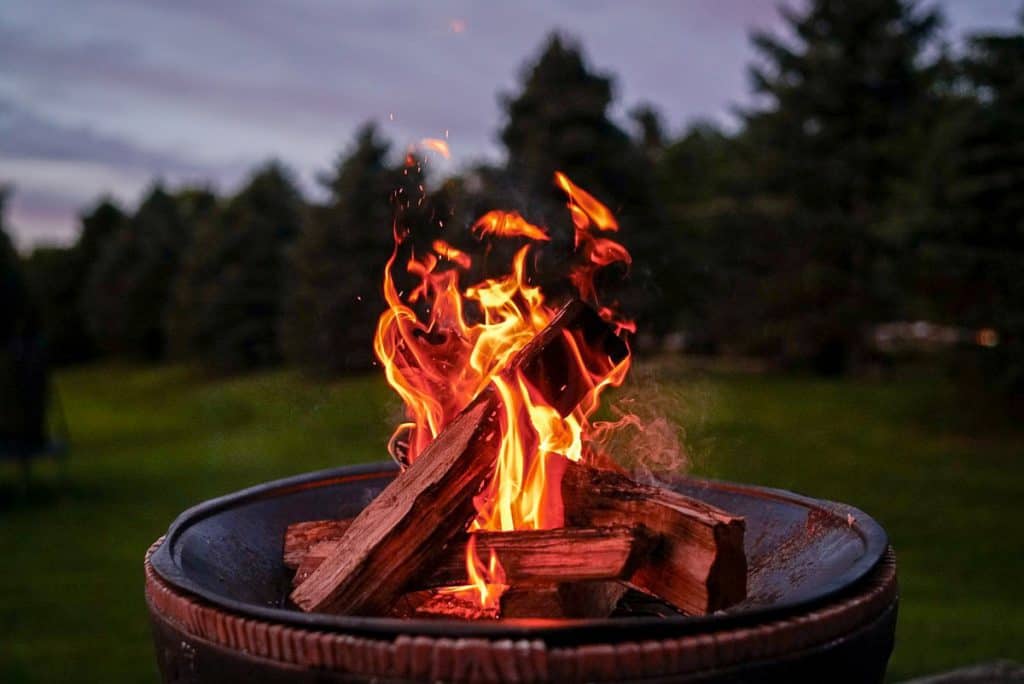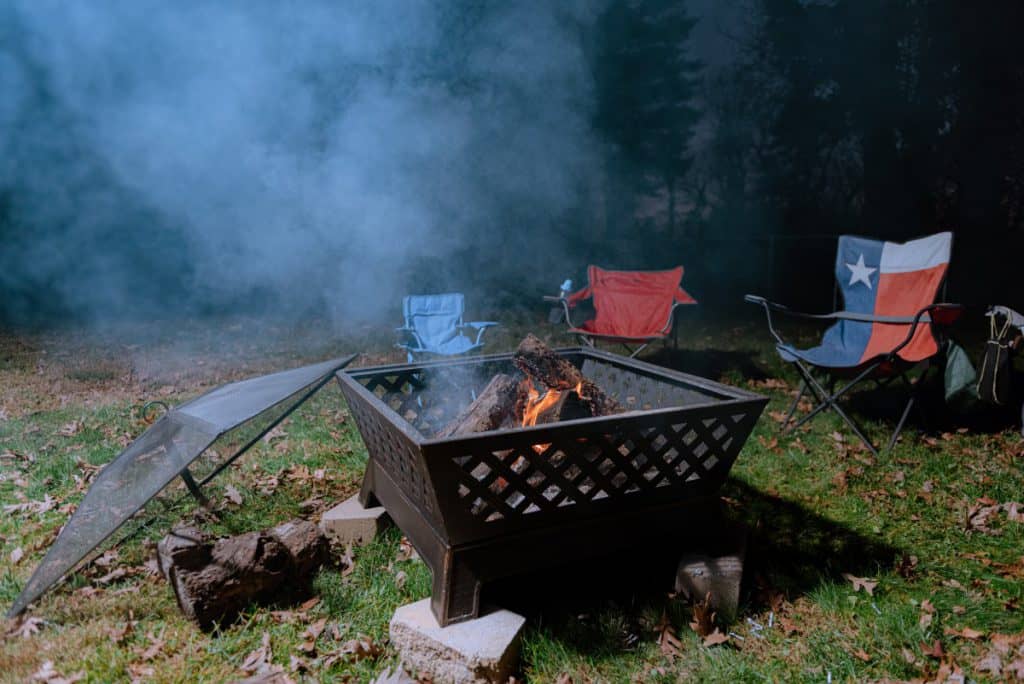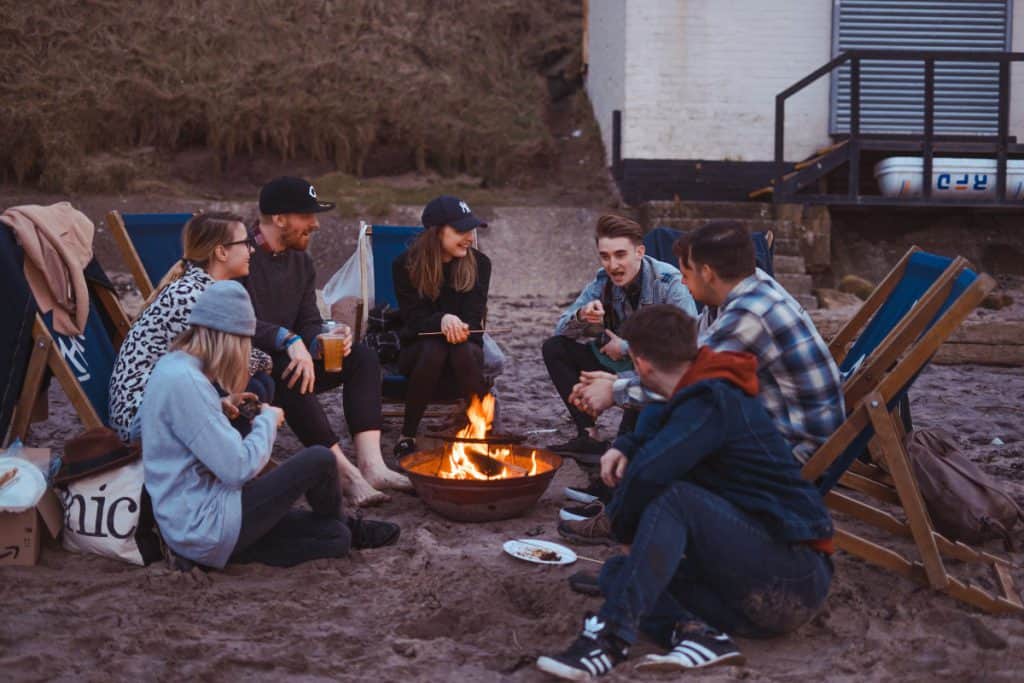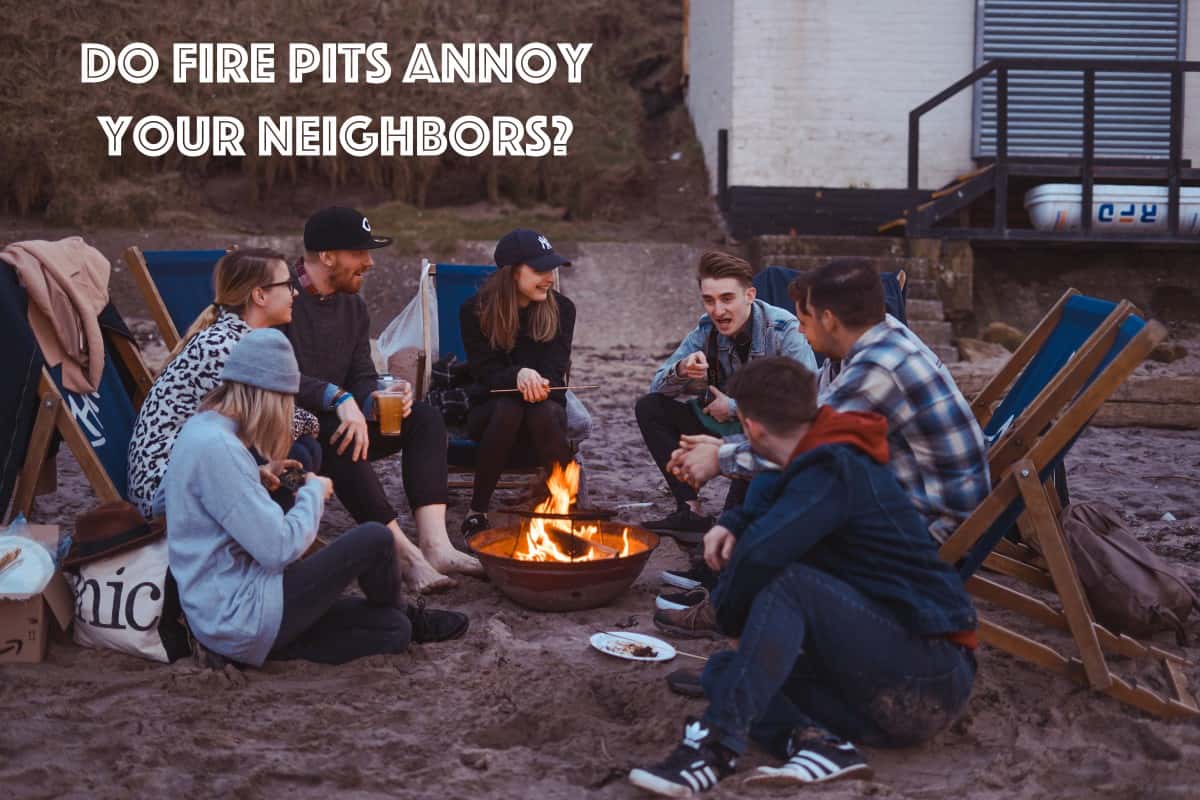Fire pits are great for spending your bitter-cold evenings engulfed in warmth, but as with all things, lighting a fire pit also brings with it some passive disadvantages, not only for you, but also for others around you, for example your neighbors.
Along with the warmth and mood setting features of a fire pit, there are some repercussions attached to its usage. For example, lighting a fire pit has environmental hazards, hazards that lead to environmental deterioration and bring forth irreparable damage to the air quality, both for you and your neighbors. This can lead to the development of respiratory diseases amongst those breathing the contaminated air, so the consequences may be severe.
“It’s not wrong to want to light a fire pit at your home to get the mood and ambience going, but there are conscientious ways of going about it – ways to make sure that the people living around you don’t suffer from your actions.“
Stay with us to find out more about how you can make sure your fire pits don’t affect the others around you negatively. Before and while using your fire pits there are a few very important questions that you must ask yourself, read on while we discuss them.

Should I Tell my Neighbors Before I Light the Fire Pit?
Keeping a good relationship with your neighbors is important because they’re the people you’ll be living around for a portion of your life, so they make up a huge part of your environment and their needs must be protected too; this is your duty as a Good Samaritan and neighbor.
Sometimes your neighbors might not tell you if something you do (for example lighting a fire pit) is bringing unforeseen inconveniences to them, because they don’t want to come off as killjoys. So they remain quiet, so as not to spoil your fun; here’s where you must pay attention, because a little conscientiousness never killed anybody.
So yes! Informing your neighbors before lighting your fire pits is important because it helps prevent and keep in check a lot of things:
- If you’re living in the suburbs, you already have a pretty good idea of how close the houses are actually constructed; meaning all the smoke produced by your fire pit will be privy to your nearby neighbors as well. The smoke does not dissipate into thin air because there isn’t much space between the houses, nor do the houses in small towns and suburbs have a big enough lawn or yard for the smoke to diffuse within the air evenly.
When told beforehand, your neighbors can close their windows and doors so that all the smoke that would have otherwise entered their house and stained their domestic environment with an ashen and smoky smell can be avoided. - The smoke produced by a fire pit contains ash particles, so it would make sense to say that it can cause the nearby houses’ walls to be stained grey. This could prove to be a problem since it would mean more maintenance costs for the neighbors for example frequent white wash and repainting.
This problem can be prevented by informing the neighbors beforehand so that they put coverings onto their walls and cars to prevent smoke staining. - The biggest hazard associated with fire pits usage is the environmental costs attached to it. If frequently used, fire pits can produce enough smoke and contaminants to permanently damage the air quality of the area or town. This will bring forth a rise in respiratory diseases as mentioned before, hence damaging you and your neighbors’ health.
To prevent this you must tell your neighbors to take precautionary measures, for example, purchase a mask and wear it whenever going outside, furthermore, it wouldn’t hurt to install an air cleaning device near the place the fire pit is burning so that the smoke is filtered through it first before the air reaches the neighbors. - Lastly, another health-related disadvantage associated with being around air contaminated by a fire pit is that your skin takes the entire toll. Meaning your skin, when exposed to the harsh contaminants and smoke, will be damaged, and hence will break out. Furthermore, the smoke particles aggravate people with asthma.
To avoid this, the neighbors must be informed whenever you’re lighting a fire pit so that they make sure to get out less and cover their faces whenever doing so.

Should I Invite my Neighbors Around?
Now for the actual tricky question; should you, or should you not, invite your neighbors around? Fire pits are notorious for setting up a warm and cozy ambiance, which makes others want to join in too, to quell the evening chill.
“As a gesture of good will, or even common courtesy, you should invite them around to have fun as well.“
Keeping in mind that they’re welcomed to decline if they don’t feel comfortable hanging around a fire pit because of health related issues or any other. So it’s recommended to ask them in a manner that depicts that they have a choice to decline.
Is Checking the Weather Report and the Wind Direction Important?
Absolutely! Before you start up that fire pit, be sure to check the weather report to notice and keep an eye out for any anomalies in the weather that might cause hazardous situations.
It’s extremely important to check for wind-related weather phenomena, as lighting a fire on heavily windy days can cause sparks to reach the nearby trees or bushes and that can start a fire. Or if the wind is directed directly at your neighbor’s house, they might end up inhaling even more smoke than you.
Checking your wind direction is important as well when you’re inviting your neighbors over as guests. If you let them sit in the direction of the wind, the smoke produced by the campfire will directly reach them, causing discomfort and damage to their lungs. Hence they must sit in the opposite direction as of that of the wind, as per to avoid inhaling any smoke.
Can my neighbors get me in trouble if I light my fire pit?
Unfortunately, yes. Your neighbors can and will report you to the authorities, but only in the cases where you don’t follow the rules and regulations regarding fire pits laid out by the concerned authorities and regulatory bodies. If the campfire or the fire bit you’ve built violates the terms laid out, chances are, your neighbors can press charges against you.
Burn bans are common in many counties and towns of America. So you ought to first make sure that the area you’re residing in doesn’t have one before starting the campfire. Even though burn bans are put there for the public’s safety, there are towns where they’re not needed because the houses are constructed within significant distance to each other.
There are also restrictions on what you can burn within your fire pits. Material such as plastic and garbage are impermissible to burn as they produce a lot of carbon emissions and that in turn decimates the air quality of the area around. So if your neighbors find you burning something you ought not to, they’re within full rights to call the cops on you.
In most cases, to avoid being reprimanded by the authorities on creating a fire pit, you must first acquire a permit from your local regulatory bodies.

What’s a safe location to have my fire pit that won’t annoy the neighbors?
Choosing a good location to build up your fire can be a hassle when you don’t know how exactly to choose one. Allow us to help you out with that. Since your main concern is you and your neighbors’ safety, there are a couple of things you should keep in mind when starting your fire:
- Never, ever start your fire underneath a shade or at a place where tree boughs are hanging above you. If a spark from the fire gets into contact with the shade or the trees it could potentially start an incontrollable fire and cause a fire hazard.
Following that precaution, you should also start your campfire away from any flammable material to avoid any fire-related emergencies. - It’s advisable to start your fire in an open space, or a space big enough for there to be no safety hazards at all, so indoor fire pits are a big no-no. Your backyard or lawn might be a more suitable place to build your fire as it is safer, plus the smoke would have an escape route and won’t be a hassle to your neighbors.
In addition to that, the fire must be built at least ten feet away from both you and your neighbors’ houses. This will prevent any fire and smoke outreach. - Fire pits take up a lot of space, so your patio or yard must be big enough to not cause any inconveniences, no matter how minor, to your neighbors. Also, before setting up the fire pit, check in with the rules and regulations set out by the fire department of your local county regarding fire pits and the minimum safe distance they must be kept at from any building structures.
Proper research should be done so that even if your neighbors take up an issue with you regarding the fire pit you put up, you can justify it by explaining how you were following the regulations laid out by the concerned authorities.
The Final Word
Building a fire pit can be quite a challenge if your neighbors oppose the idea. Thankfully, there are ways you can go about building your fire to make sure that you and your neighbors stay content and at peace.
Alright, that’s it for this article guys, if you found it useful then a share on social media or your website would be cool!
All the best
Steve
ps here’s a few articles related to this one you might find interesting:
How to Clean a Fire Pit – A Beginner’s Guide

